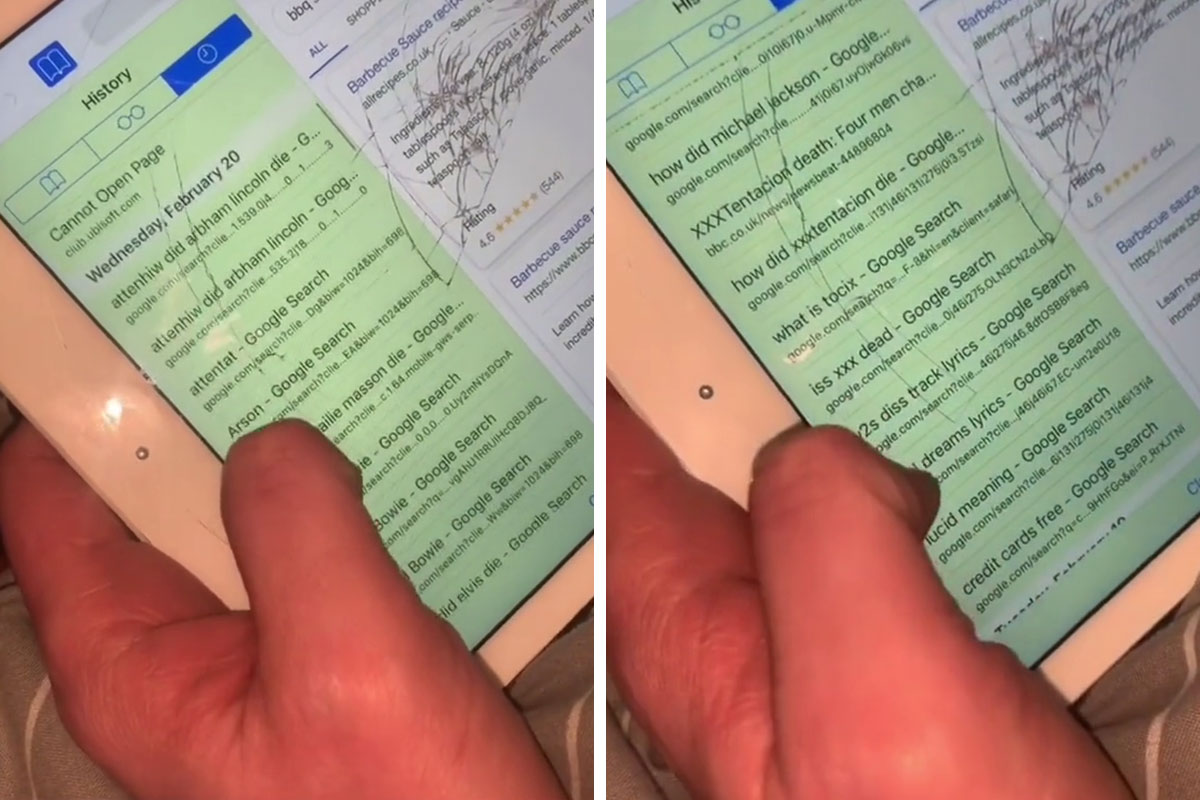
Dad And Netizens Are Collectively Mortified After Scrolling Through 8YO’s Internet Browsing History
The continuous development of technology and the digital space brings about discussions surrounding new phenomena, and sharing a child’s personal information online is one of them.
According to researchers, as with most online activities, ‘sharenting’ includes both potentially positive and negative effects, yet it is something to be aware of and keep in mind by caregivers. The video posted by the older sister of an 8-year-old is one example of this relatively new phenomenon.
More info: TikTok
A father found his 8-year-old’s search history that caught his attention and has sparked a discussion online
Image credits: ashleighjwil
In the video shared by the boy’s older sister, she and their father are reacting to the search list
In the video, the father and the 8-year-old’s older sister are looking and having a laugh about the boy’s search history. The list includes lucid dreams and song lyrics, followed by credit card free, how did XXXtentacion die, how did Michael Jackson die, and how did Elvis die online searches.
And finally, the BBQ sauce on t**ties caused the father and sister to burst into fits of laughter. This was later pointed out in the comments to be a Vine video with reference to a scene from Orange is the New Black.
The reactions on the internet varied greatly; some people were laughing along or at the content, others were concerned whether the content was age-appropriate for an 8-year-old, and finally, some were hesitant about the father not only checking the boy’s history but also sharing it online.
From the video, it is hard to tell what were the boy’s dad’s and his sister’s intentions; however, these are far from being the sole factor affecting the child. Similarly, there is no information about whether the boy knew about the video being shared, agreed to it being shared, or how he eventually felt about this.
Yet, the phenomenon of sharing kids’ private content online and associated risks have been discussed by researchers and it might be a good idea to consider them when deciding on particular content.
Image credits: ashleighjwil
When it comes to the search record itself, US data scientist S. Stephens-Davidowitz noticed that there was a gap between what people were found to present on official surveys and what their Google search history suggested.
This is not to say that a person can be merged with their search history online, but that there is a tendency to look up things one is not willing to ask or share with the majority of people and even anonymous surveys.
For this reason, it might be a good idea to ask for permission or only share it in cases when one is sure another person would not mind.
Such findings were also confirmed in a survey from 2020 where the majority of children agreed that they at least sometimes or more often found it easier to be themselves online than when they were with people face-to-face.
The boy’s focus circled from the circumstances surrounding deaths of well-known people to a “BBQ sauce on t**ties” search
Image credits: ashleighjwil
The latter search caused the father and the boy’s sister to burst into fits of laughter
Based on the same study, while the majority of the children confirmed that their parents engage in active mediation by talking to them, encouraging, helping, and suggesting ways to use the internet safely, there was also a substantial proportion of children who report their parents hardly ever or never talk to them about what they do on the internet.
According to the researchers, sharing content related to children is often seen by parents as a ‘natural’ part of parental behavior, especially in cases when parents are proud of their children and their accomplishments or their family life and common experiences.
And yet, they warned that there can be a tension between the behavior of parents and the children’s perspective, adding that it is the caregiver’s responsibility to carefully consider which content is potentially hurtful or may be seen by a child as unwanted or inappropriate at a later age.
Image credits: ashleighjwil
Similar points on sharenting were addressed by L.A. Plunkett in her study Why We Should Think Before We Talk About Our Kids Online where she presented her take on navigating the digital era when it comes to parenting and discussed the specifics of twenty-first-century kid problems by comparing them to the childhood and parenting problems presented in Mark Twain’s famous novel The Adventures of Tom Sawyer.
In her study, Plunkett rearranged the scenes from the well-known novel to fit today’s issues, adding that her study was about Tommy’s aunt Polly, who could very well be writing posts on social media, like “Tommy!!!”
The author examines how caregivers make decisions to disclose digital data about children that invade traditional zones of privacy and in this way sometimes threaten kids’ and teens’ ability to develop their own sense of self.
The researcher explains that her study proceeds from the understanding that privacy is about self-creation, “establishing a locus which we can call our own without undue intervention or interruption – a place where we can vest our identities.”
You can watch the original video here:
@ashleighjwil .. dad came & showed me what my 8 year old brother has been searching 😂🫣🤭 throwback to 2019 😂👏🏼 #bbqsauce ♬ original sound – Ashleigh Wilson
Image credits: Rohit Farmer (not the actual photo)
She warns that sharenting may disrupt the common understanding of childhood and adolescence as protected spaces for play and encourages parents to be sensitive about the topic by asking themselves “how kids and teens can discover who they are when adults at all times are tracking them, analyzing them, and attempting to decide for them.”
Contrary to this, Plunkett suggests that childhood and adolescence “should be valued as unique life stages during which kids and teenagers should have room to play, mess up, and to grow up better for having done so,” and invites parents to think about what they can do to empower and protect the kids they care for and childhood itself in the digital age.
Do you have something to add? Please, share your experience and thoughts in the comment section below!
Image credits: charlesdeluvio (not the actual photo)
The reactions online varied, yet the majority of people were laughing along with the boy’s dad and his sister
The people who say he needs help and are concerned with him looking up death are sheltered or have never even met a child in real life lol... I had seen the Faces of Death movies by 8th years old.
Kids get hooked on fascinating things they can't always ask people about, like celebrities dying and stuff. It seems natural to go down a rabbit hole like this .
Load More Replies...I got my 9yo son’s devices locked on moderately safe. He uses my YouTube account & creates hundreds of playlists. I don’t really use it that much & it allows him to have unfiltered access. The most disturbing things I’ve found was a search for “apple bottom jeans” and “big booty,” both lyrics from Low by Flo Rida. I casually played his results and he burst out laughing whilst stuttering to defend himself. Seems a friend from school is obsessed with the song. My kid just wanted to know what both were & I explained it to him. He’s a lover of learning, particularly geography, so he mostly searches maps, places, geological features or archeological & anthropological stuff. There’s the occasional Minecraft/Roblox/Fortnite “free code” scams, but nothing dangerous. Oh, and Michael Jackson videos and dance moves. I feel our open communication, including typically “taboo” topics & my interest in his activities helps him navigate life. Tho, I’ve struggled with explaining some sex stuff.
Be careful about the “free code” scams, they can be way worse than they seem. They can absolutely be dangerous, depending on the scam.
Load More Replies...When I was 13 or 14, I discovered the TV show MASH. I was hooked on this show. One day, I rented the movie MASH (which actually predates the TV show) and was watching it, when the opening theme came on. THERE ARE WORDS TO THIS SONG? So I started writing them down. This is pre-google days, so no searching for lyrics. The song is called "Suicide is Painless" and mentions suicide throughout the lyrics. My parents came home, and saw my sheet of paper with the lyrics, and got VERY concerned thinking I was suicidal! Um, no, I was just fascinated that this show I've bene watching.... the theme song actually has LYRICS. LOL
The people who say he needs help and are concerned with him looking up death are sheltered or have never even met a child in real life lol... I had seen the Faces of Death movies by 8th years old.
Kids get hooked on fascinating things they can't always ask people about, like celebrities dying and stuff. It seems natural to go down a rabbit hole like this .
Load More Replies...I got my 9yo son’s devices locked on moderately safe. He uses my YouTube account & creates hundreds of playlists. I don’t really use it that much & it allows him to have unfiltered access. The most disturbing things I’ve found was a search for “apple bottom jeans” and “big booty,” both lyrics from Low by Flo Rida. I casually played his results and he burst out laughing whilst stuttering to defend himself. Seems a friend from school is obsessed with the song. My kid just wanted to know what both were & I explained it to him. He’s a lover of learning, particularly geography, so he mostly searches maps, places, geological features or archeological & anthropological stuff. There’s the occasional Minecraft/Roblox/Fortnite “free code” scams, but nothing dangerous. Oh, and Michael Jackson videos and dance moves. I feel our open communication, including typically “taboo” topics & my interest in his activities helps him navigate life. Tho, I’ve struggled with explaining some sex stuff.
Be careful about the “free code” scams, they can be way worse than they seem. They can absolutely be dangerous, depending on the scam.
Load More Replies...When I was 13 or 14, I discovered the TV show MASH. I was hooked on this show. One day, I rented the movie MASH (which actually predates the TV show) and was watching it, when the opening theme came on. THERE ARE WORDS TO THIS SONG? So I started writing them down. This is pre-google days, so no searching for lyrics. The song is called "Suicide is Painless" and mentions suicide throughout the lyrics. My parents came home, and saw my sheet of paper with the lyrics, and got VERY concerned thinking I was suicidal! Um, no, I was just fascinated that this show I've bene watching.... the theme song actually has LYRICS. LOL
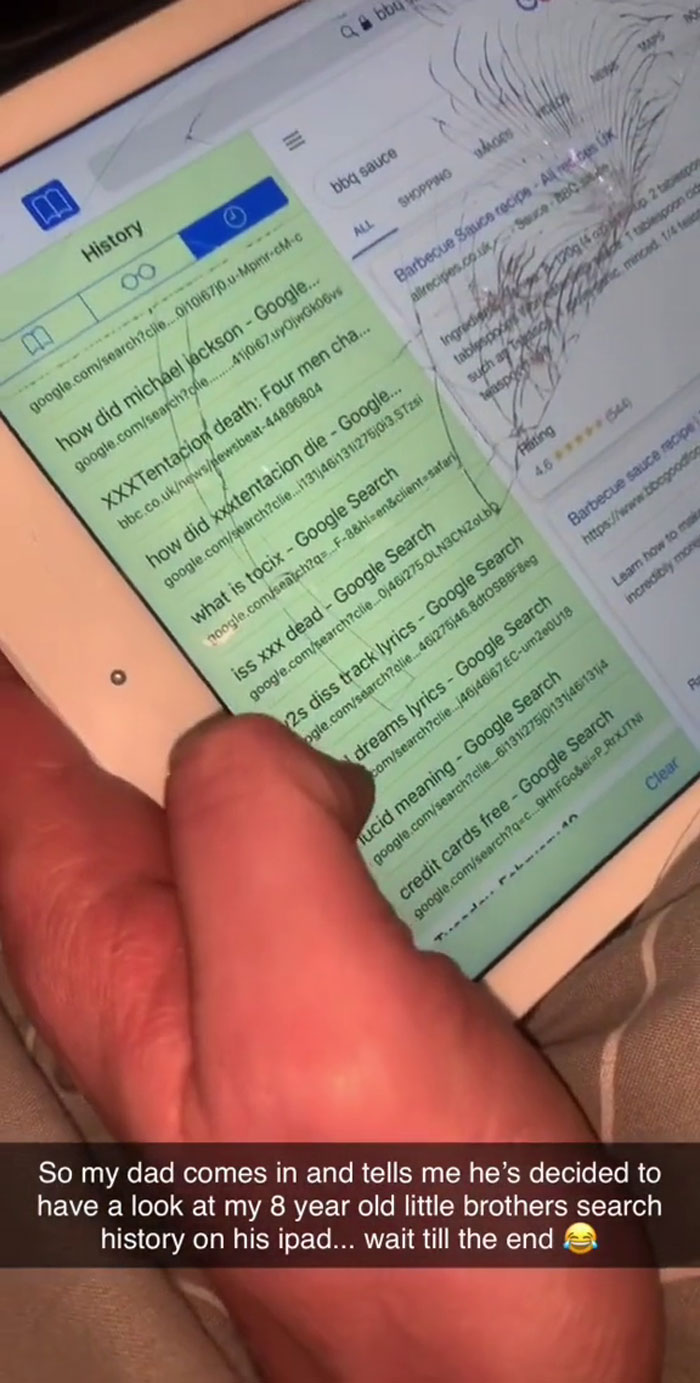
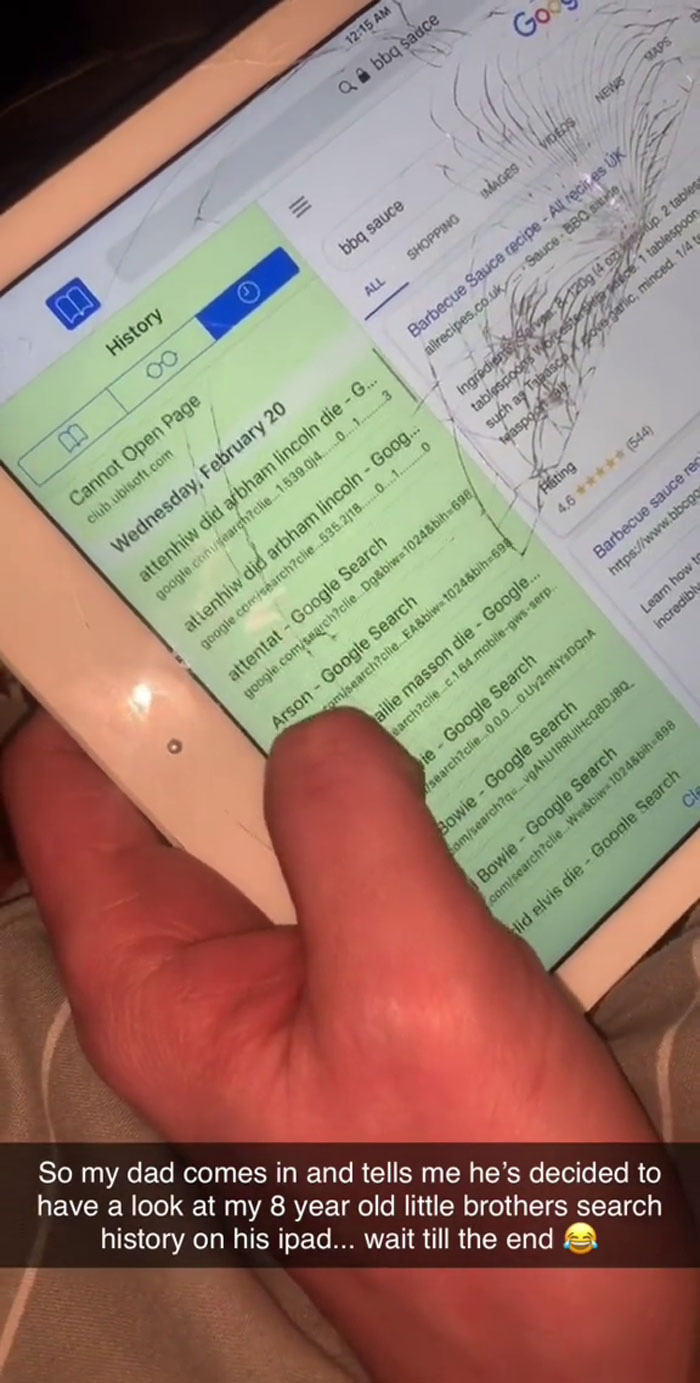
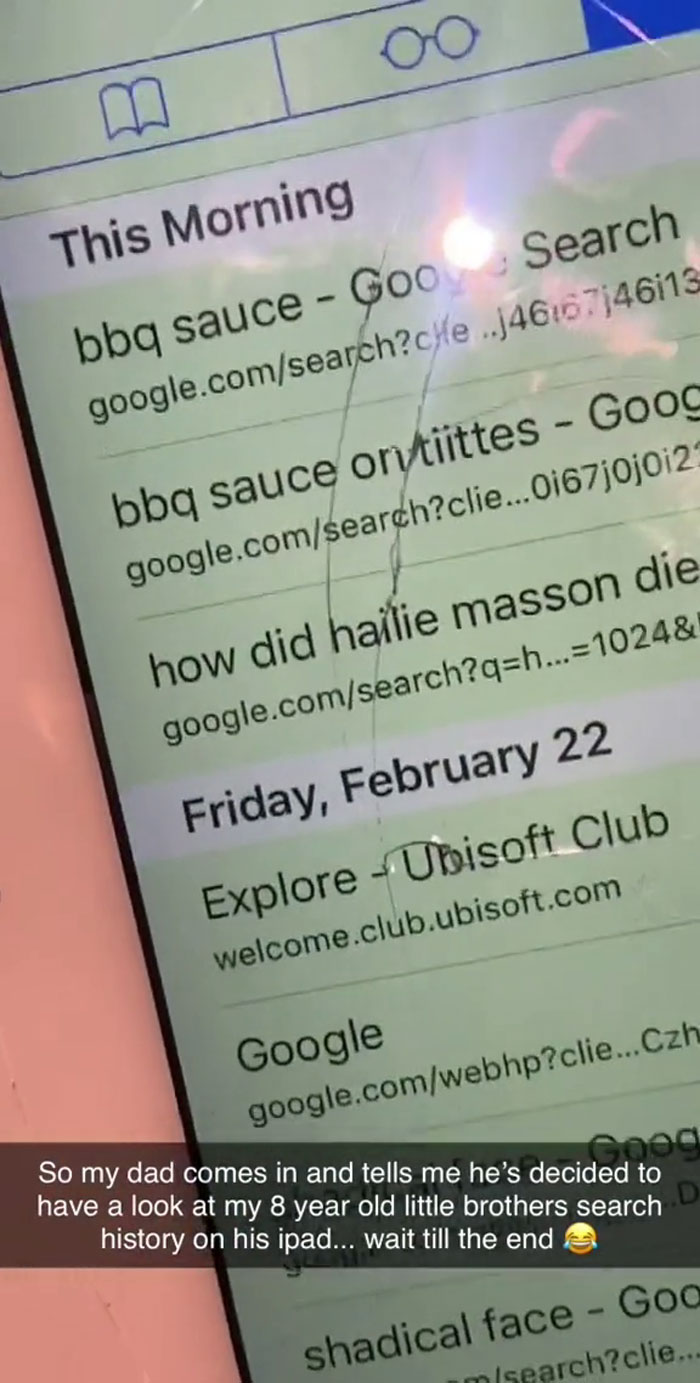
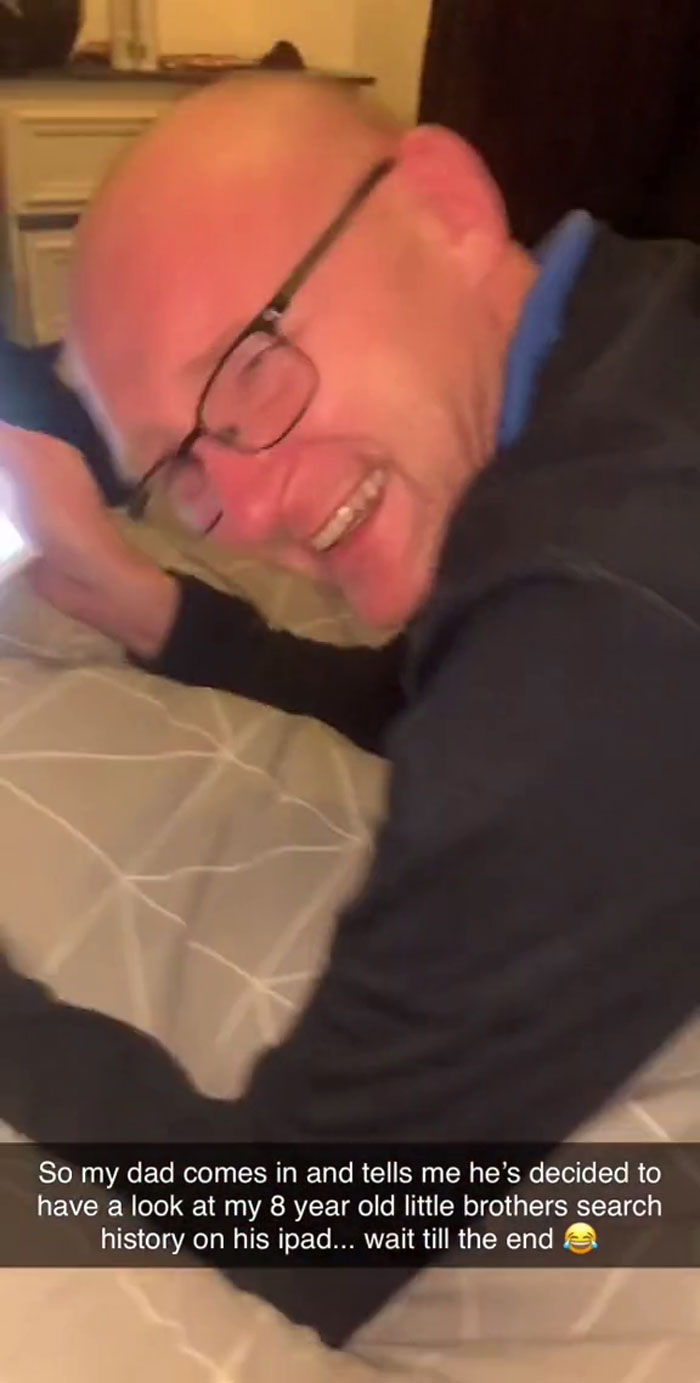
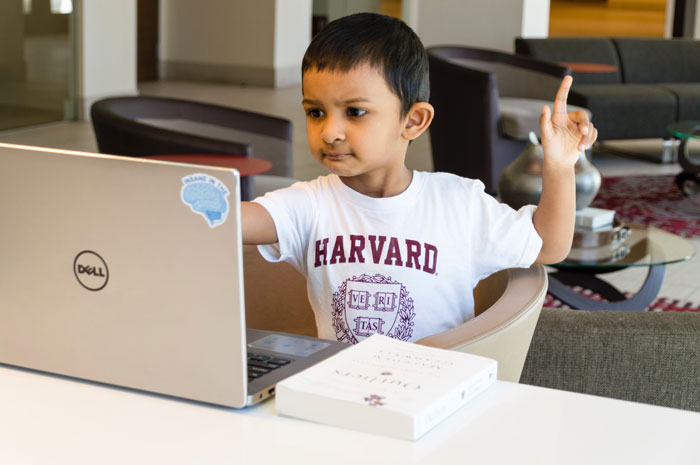
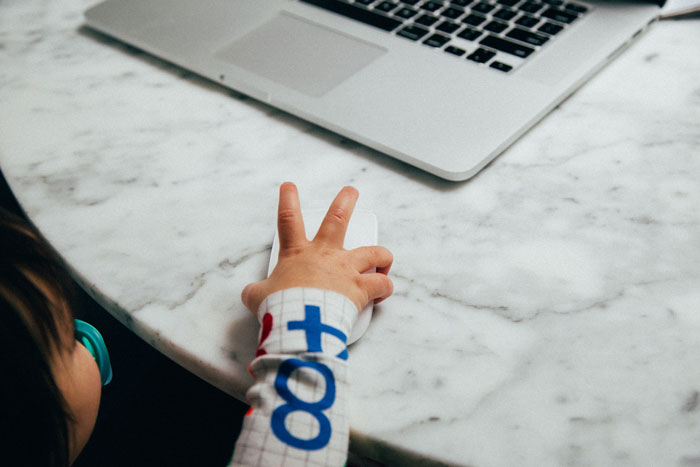


































3
42